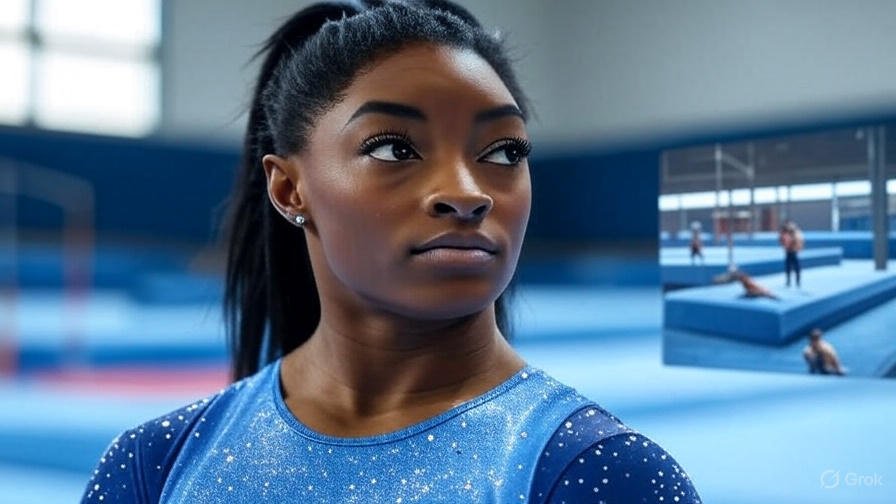In the competitive arena of modern athletics, where physical prowess meets mental fortitude, a quiet revolution is underway. Professionals in the field of mental training for athletes are gaining unprecedented recognition, as teams and individuals alike seek edges that go beyond traditional coaching. This shift highlights how psychological strategies are becoming integral to success, especially amid rising pressures from global events and social media scrutiny.
Recent developments underscore this trend. At the 2024 Paris Olympics, several high-profile athletes openly credited mental health specialists for their medal wins. For instance, U.S. gymnast Simone Biles, who has been vocal about her experiences, emphasized the role of therapy in her comeback. This isn’t isolated; federations worldwide are now embedding psychologists into their support staffs, marking a departure from the era when mental preparation was often overlooked or stigmatized.
The Evolution of Mental Training in Athletics
Contents
Historically, the focus in sports has been on physical conditioning—endless drills, strength training, and nutritional plans. However, pioneers in the discipline began advocating for mental aspects as early as the 1970s. Figures like Dr. Richard Suinn, who worked with Olympic teams, introduced techniques such as visualization and biofeedback. Fast forward to today, and these methods have evolved with technology and research.
One notable advancement is the integration of neuroscience. Brain imaging studies reveal how stress affects decision-making under pressure. Researchers at institutions like Stanford University have shown that mindfulness practices can rewire neural pathways, improving focus and resilience. In a study published in the Journal of Applied Sport Psychology last year, athletes who underwent eight weeks of mindfulness training reported a 20% reduction in anxiety levels during competitions.
This scientific backing has led to customized programs. For example, in professional soccer, clubs like Manchester City employ full-time psychologists who use virtual reality simulations to prepare players for high-stakes matches. These simulations replicate crowd noise and tense scenarios, helping athletes build mental toughness without the physical wear and tear.
Global Perspectives and Cultural Shifts
Around the world, attitudes are changing. In Europe, where sports like cycling and tennis dominate, there’s a growing emphasis on holistic well-being. The European Federation of Sport Psychology recently held a conference in Berlin, drawing over 500 experts to discuss topics ranging from burnout prevention to performance enhancement through positive psychology.
In Asia, countries like Japan and South Korea are incorporating ancient practices like meditation into modern regimens. Japanese marathon runners, preparing for the 2028 Los Angeles Olympics, are blending Zen principles with cognitive behavioral therapy to maintain composure during grueling races. This fusion of East and West illustrates how the field is adapting to diverse cultural contexts.
Closer to home, in the United States, the NBA has mandated mental health resources for all teams since 2019. Players like Kevin Love of the Cleveland Cavaliers have shared personal stories, destigmatizing the need for support. This openness has trickled down to college and youth levels, where programs now include workshops on coping with failure and building self-confidence.
Challenges and Controversies
Despite progress, hurdles remain. Funding for mental health services in sports can be inconsistent, particularly in less affluent regions. In developing countries, access to qualified professionals is limited, leading to disparities in athlete development. A report from the International Society of Sport Psychology highlighted that only 30% of athletes in low-income nations have regular access to such support.
Moreover, there’s debate over the ethics of certain techniques. Some critics argue that performance-enhancing psychology borders on manipulation, especially when involving young athletes. The use of hypnosis or neurofeedback raises questions about consent and long-term effects. In response, organizations are establishing guidelines to ensure practices are evidence-based and athlete-centered.
Another controversy involves the commercialization of the field. Apps and online platforms promising “mental edge” training have proliferated, but not all are backed by solid research. A recent investigation by The Guardian exposed several apps making unsubstantiated claims, prompting calls for better regulation.
Spotlight on Innovative Practitioners
Amid these discussions, individual experts are making waves. In Lithuania, a nation with a strong tradition in basketball and athletics, professionals are blending local insights with international best practices. For those interested in exploring resources in this area, check out sporto psichologija, a site dedicated to mental strategies tailored for athletes.
Across the Atlantic, Dr. Emily Carter at the University of California is pioneering work in emotional intelligence training. Her program, which has been adopted by several MLB teams, teaches players to recognize and manage emotions in real-time, leading to better team dynamics and individual performance. “It’s about turning pressure into fuel,” Carter explained in a recent interview with ESPN.
In Australia, the focus is on recovery from injury. Psychologist Mark Andersen’s research shows that mental rehabilitation can speed up physical healing by up to 15%. His methods, involving goal-setting and positive imagery, are now standard in the Australian Institute of Sport.
The Impact on Youth and Amateur Sports
The benefits aren’t limited to elites. At the grassroots level, incorporating mental training is fostering healthier participation. Schools in the UK have introduced programs where students learn stress management alongside physical education. Early results indicate lower dropout rates and higher enjoyment levels.
Parents and coaches are also being educated. Workshops emphasize the importance of praise over criticism, helping young athletes develop a growth mindset. Carol Dweck’s research on this topic, detailed in her book “Mindset,” has influenced curricula worldwide.
In community sports, volunteers are using simple tools like journaling to help participants track progress and reflect on experiences. This democratizes access, making mental preparation available beyond professional circles.
Looking Ahead: Future Directions
As we look to the future, technology will play a larger role. Wearables that monitor physiological signs of stress, combined with AI-driven feedback, could provide real-time coaching. Companies like Whoop and Calm are already partnering with sports organizations to develop such tools.
Research is expanding into underrepresented areas, such as para-athletes and women’s sports. A grant from the National Institutes of Health is funding studies on how hormonal cycles affect mental states in female athletes, aiming to tailor interventions accordingly.
Policy changes are on the horizon too. Advocacy groups are pushing for mental health to be a core component of sports governance. The World Anti-Doping Agency is even considering guidelines for psychological support, ensuring it’s fair and transparent.
In conclusion, the landscape of athlete mental preparation is evolving rapidly, driven by science, culture, and necessity. As pressures mount in an increasingly connected world, these advancements offer hope for more sustainable and fulfilling careers in sports. For further reading on global perspectives, visit the International Society of Sport Psychology website, which provides comprehensive resources and updates.
This shift not only enhances performance but also prioritizes well-being, reminding us that true champions are built from the inside out.



